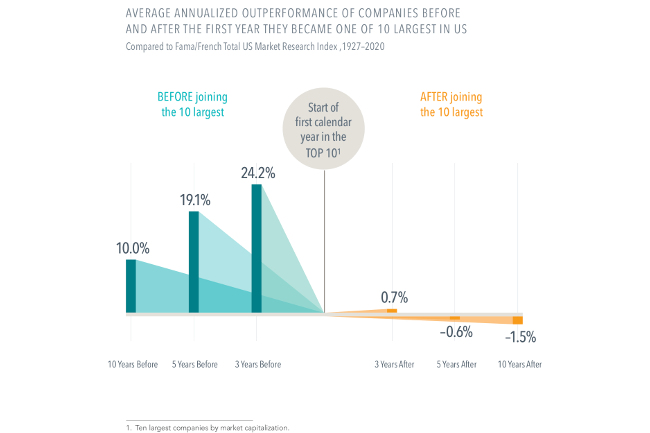While the full impact of AI is still unfolding, its influence on financial markets in the coming years is undeniable. Amid these rapid changes, a well-balanced portfolio tailored to your personal financial goals, risk tolerance, and investment horizon is more important than ever.
Over the past year, there’s been a notable increase in investments directed towards AI-focused companies and funds. Unsurprisingly, stocks of companies involved in AI development, implementation, or support have seen remarkable growth, outpacing the broader market.
NVIDIA serves as a prime example of this trend. As a leading producer of semiconductors and chips that power AI technologies, the company has positioned itself as a key player in the AI space. In recent quarters, NVIDIA has demonstrated impressive performance, tripling its revenue year-over-year and achieving a substantial 149% increase in stock price during the first half of 2024.
While tech companies are at the forefront of this technological revolution, AI’s influence extends well beyond this sector. Industries such as healthcare, financial services, and retail are also embracing AI’s transformative potential. As artificial intelligence continues to advance and more companies adopt this technology, many investors are contemplating its broader, long-term implications for the stock market.
UNDERSTANDING THE IMPACT OF AI ON FINANCIAL MARKETS
AI has emerged as a significant force in shaping stock market performance, transforming both business practices and investment approaches. This technological shift has gained traction thanks to advancements in computing power, greater data accessibility, and refined machine learning algorithms.
Companies leading AI development or effectively integrating AI solutions have seen notable increases in their market value. This trend is particularly pronounced among major tech firms. For instance, the “Magnificent Seven” – a group including Meta Platforms, Amazon, Apple, Netflix, Alphabet, Microsoft, and NVIDIA – exemplify this phenomenon. These companies now represent about one-third of the S&P 500 Index and were responsible for over half of the index’s gains in 2023.
As AI continues to develop, its influence on the stock market is likely to expand, bringing both opportunities and potential risks for investors. By gaining insight into AI’s long-term impact on financial markets, investors can make more informed decisions and potentially harness this innovative technology to strengthen their portfolios over time.
POTENTIAL OPPORTUNITIES FOR LONG-TERM INVESTORS
AI’s swift progress is transforming industries, creating new investment prospects while challenging existing business models. Key sectors such as healthcare, finance, manufacturing, and transportation are set to experience significant AI-driven innovations in the near term, potentially reshaping the investment landscape.
In healthcare, for example, AI has the potential to revolutionize drug discovery, personalized medicine, and diagnostic imaging. This could lead to the rise of new market leaders and possibly impact companies that are slow to adapt.
The transportation sector may see similar shifts. Self-driving vehicles could redefine personal and commercial transportation, potentially affecting traditional auto manufacturers, rideshare services, and logistics companies. Additionally, AI-optimized traffic systems might transform city infrastructure, influencing companies involved in road construction, parking facilities, and public transportation.
For long-term investors, staying informed about AI trends and their potential impact across industries can help in strategically positioning portfolios to benefit from technological advancements. However, it’s equally crucial to carefully evaluate the risks associated with AI investments, especially as this rapidly evolving technology continues to transform financial markets and the broader economy.
CHALLENGES AND CONSIDERATIONS WHEN INVESTING IN AI
While AI’s potential is undoubtedly exciting, it’s essential to consider the challenges and broader implications of this transformative technology. Key considerations include:
- Responsible AI Standards. A significant challenge for investors is identifying companies committed to responsible AI practices. This includes transparency, ethical considerations, and alignment with human values. Prioritizing these factors can help mitigate risks associated with irresponsible AI development and focus attention on companies more likely to create sustainable, beneficial AI technologies.
- Proactive Risk Management. Despite the vast opportunities AI presents, it also brings potential challenges such as job displacement, hiring biases, and widening skill gaps—all of which could significantly impact the economy and society. Companies that proactively address these risks may be better positioned for long-term success.
- Effective AI Governance. As AI becomes more prevalent, regulatory frameworks are likely to evolve. Companies with robust AI governance structures, including clear policies on data usage, privacy protection, and algorithmic accountability, may be better equipped to navigate future regulatory changes.
Despite uncertainties surrounding AI’s future, long-term investors can make more informed decisions by evaluating the technology’s wider implications. This approach can help identify promising opportunities while mitigating potential risks associated with AI investments.
NAVIGATING AN UNCERTAIN FUTURE WITH CLARITY AND CONFIDENCE
The rise of artificial intelligence is revolutionizing financial markets and reshaping the broader economy. For long-term investors, this presents both exciting new opportunities and unique challenges.
While the full impact of AI is still unfolding, its influence on financial markets in the coming years is undeniable. Amid these rapid changes, a well-balanced portfolio tailored to your personal financial goals, risk tolerance, and investment horizon is more important than ever.
Remember, you don’t have to navigate this journey alone. Working with Sloan Advisory Group can provide invaluable guidance, empowering you to make informed decisions that pave the way for a secure and prosperous future.
Contact us to create a personalized plan that can help you reach your financial goals with clarity and confidence.







